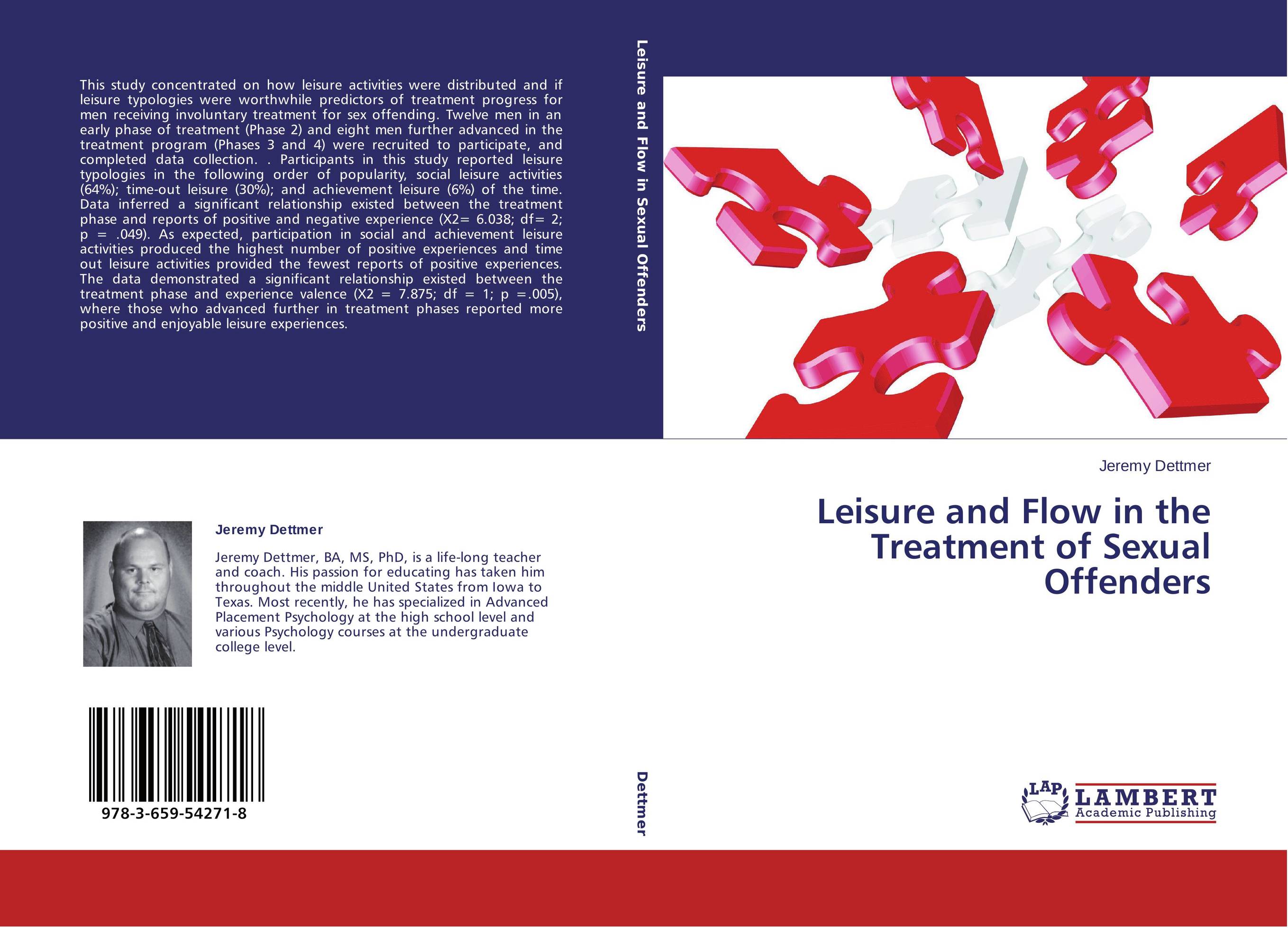| Поиск по каталогу |
|
(строгое соответствие)
|
- Профессиональная
- Научно-популярная
- Художественная
- Публицистика
- Детская
- Искусство
- Хобби, семья, дом
- Спорт
- Путеводители
- Блокноты, тетради, открытки
Leisure and Flow in the Treatment of Sexual Offenders.

В наличии
| Местонахождение: Алматы | Состояние экземпляра: новый |

Бумажная
версия
версия
Автор: Jeremy Dettmer
ISBN: 9783659542718
Год издания: 2014
Формат книги: 60×90/16 (145×215 мм)
Количество страниц: 156
Издательство: LAP LAMBERT Academic Publishing
Цена: 32426 тг
Положить в корзину
| Способы доставки в город Алматы * комплектация (срок до отгрузки) не более 2 рабочих дней |
| Самовывоз из города Алматы (пункты самовывоза партнёра CDEK) |
| Курьерская доставка CDEK из города Москва |
| Доставка Почтой России из города Москва |
Аннотация: This study concentrated on how leisure activities were distributed and if leisure typologies were worthwhile predictors of treatment progress for men receiving involuntary treatment for sex offending. Twelve men in an early phase of treatment (Phase 2) and eight men further advanced in the treatment program (Phases 3 and 4) were recruited to participate, and completed data collection. . Participants in this study reported leisure typologies in the following order of popularity, social leisure activities (64%); time-out leisure (30%); and achievement leisure (6%) of the time. Data inferred a significant relationship existed between the treatment phase and reports of positive and negative experience (X2= 6.038; df= 2; p = .049). As expected, participation in social and achievement leisure activities produced the highest number of positive experiences and time out leisure activities provided the fewest reports of positive experiences. The data demonstrated a significant relationship existed between the treatment phase and experience valence (X2 = 7.875; df = 1; p =.005), where those who advanced further in treatment phases reported more positive and enjoyable leisure experiences.
Ключевые слова: leisure, sexual offending, flow theory, Treatment Progress, Civil Commitment, Sexual Offenders



